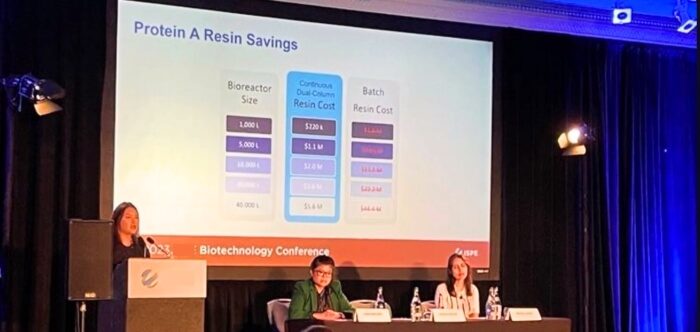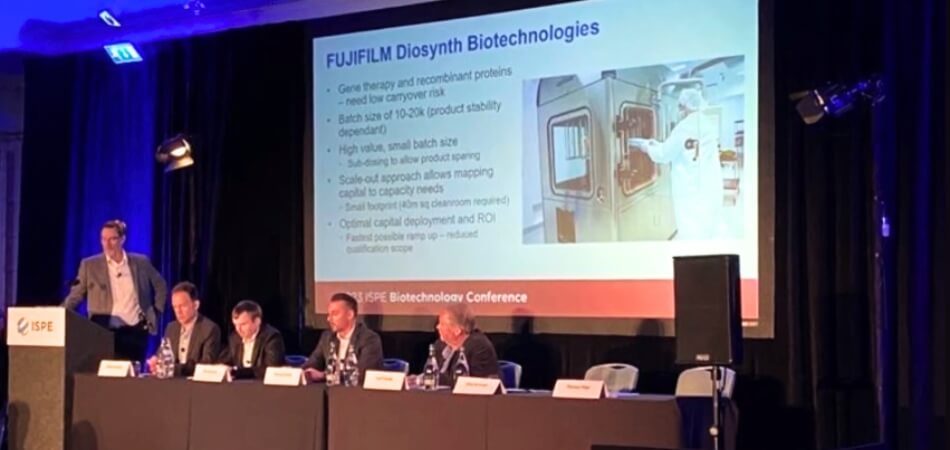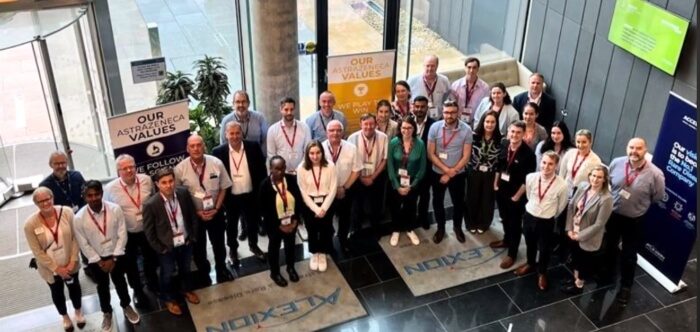Biotechnology stands at the forefront of scientific exploration, constantly evolving with every groundbreaking study and innovative product. It’s a sector that never sleeps, and staying updated with its rapid advances is crucial for anyone involved in the scientific community.
In the heart of this dynamic environment, one event encapsulates the pulse of all the latest developments: the Biotechnology Conference. So, what is the Biotechnology Conference?
It’s a prestigious gathering that unites professionals, researchers, and industry leaders to deliberate on current advancements, research discoveries, and emerging trends in biotechnology.
Beyond a mere meeting, it serves as a vibrant marketplace of ideas, promoting collaborations, and unveiling innovations that have the potential to redefine boundaries across various sectors, from health and agriculture to environmental conservation. Don’t miss the opportunity to be part of these pivotal discussions that shape the future of biotechnology.
Biotechnology – A Brief Oversight
Biotechnology harnesses cellular and biomolecular processes to develop technologies and products that improve life quality. It’s pivotal in creating medical therapies, enhancing food stability, and tackling environmental challenges. By manipulating biological systems, it offers solutions previously deemed unattainable.
This sector’s growth is fueled by a fusion of biology and tech innovations. Experts collaborate across disciplines, pushing boundaries of what’s scientifically possible. Their united goal: solving complex problems, enhancing overall health, and sustainability for our world.
What is the Biotechnology Conference?
Professionals in the field seek platforms for collaboration, knowledge exchange, and exploration of new opportunities. The Biotechnology Conference emerges as a critical confluence for these interdisciplinary interactions.
The Biotechnology Conference is an annual gathering of global experts, researchers, and industry innovators. It’s designed for extensive networking, sharing research findings, and discussing emerging biotechnological trends. Participants attend sessions covering healthcare, environmental solutions, and agricultural advancements.
Not just a scholarly meeting, this event bridges academia and industry, fostering collaborations that push scientific boundaries. Insights gained here often shape policy, investment, and research directions globally.
Ultimately, it’s a catalyst for advancements that could redefine modern living. Joining international engineering and applied science conferences will help you gain deep insights into biotechnology science.
Every dialogue in this arena could spark a revolutionary idea that could extend beyond the duration of the conference. It’s not just about present achievements but inspiring future biotechnological breakthroughs. The Biotechnology Conference stands as a beacon, guiding the path toward scientific enlightenment and global betterment.
Different Types of Biotechnology Conferences
Biotechnology’s expansive nature encompasses various disciplines, each critical to understanding life’s intricacies and improving our world. To facilitate this, specialized conferences focus on distinct biotechnological areas. These gatherings serve as hubs for innovation, discussion, and networking among like-minded professionals.
Medical Biotechnology Conferences
These conferences center on utilizing living cells and cell materials in medical research and treatments. They’re crucial for professionals exploring novel therapeutics, diagnostics, and biopharmaceutical developments. Participants engage in discussions that could potentially shape future healthcare paradigms.
Agricultural Biotechnology Conferences
Focusing on agricultural sciences’ technological aspects, these forums explore genetic engineering, biopesticides, and crop modifications. They gather experts dedicated to enhancing food security, nutrition, and agricultural sustainability. The dialogues ignite initiatives for resilient, productive, and sustainable food systems.
Environmental Biotechnology Conferences
These assemblies address biotechnology’s environmental applications, particularly waste reduction and bioresource management. Key discussions revolve around bioremediation, sustainable bioenergy, and environmental safety. They’re essential for strategizing ecological preservation and innovative resource management.
Industrial Biotechnology Conferences
These events cover biotechnology in industrial sectors like biofuels, biochemicals, and biomaterials. They aim to explore sustainable industrial processes, emphasizing resource efficiency and waste reduction. Collaboration in these settings paves the way for green, sustainable industrial practices.
Marine Biotechnology Conferences
Focusing on marine-based resources, these conferences delve into oceanic bio-potentials. They encompass bioproducts, environmental applications, and blue biotechnology. These gatherings are pivotal for advancing ocean resource utilization and conservation strategies.
Attending these specialized conferences provides professionals with insights into biotechnology’s cutting-edge aspects. These events not only highlight current achievements but also set the stage for future breakthroughs.
Why Should You Attend the Biotechnology Conference?
Biotechnology’s expansive nature encompasses various disciplines, each critical to understanding life’s intricacies and improving our world. To facilitate this, specialized conferences focus on distinct biotechnological areas. These gatherings serve as hubs for innovation, discussion, and networking among like-minded professionals.
Medical Biotechnology Conferences
These conferences center on utilizing living cells and cell materials in medical research and treatments. They’re crucial for professionals exploring novel therapeutics, diagnostics, and biopharmaceutical developments. Participants engage in discussions that could potentially shape future healthcare paradigms.
Agricultural Biotechnology Conferences
Focusing on agricultural sciences’ technological aspects, these forums explore genetic engineering, biopesticides, and crop modifications. They gather experts dedicated to enhancing food security, nutrition, and agricultural sustainability. The dialogues ignite initiatives for resilient, productive, and sustainable food systems.
Environmental Biotechnology Conferences
These assemblies address biotechnology’s environmental applications, particularly waste reduction and bioresource management. Key discussions revolve around bioremediation, sustainable bioenergy, and environmental safety. They’re essential for strategizing ecological preservation and innovative resource management.
Industrial Biotechnology Conferences
These events cover biotechnology in industrial sectors like biofuels, biochemicals, and biomaterials. They aim to explore sustainable industrial processes, emphasizing resource efficiency and waste reduction. Collaboration in these settings paves the way for green, sustainable industrial practices.
Marine Biotechnology Conferences
Focusing on marine-based resources, these conferences delve into oceanic bio-potentials. They encompass bioproducts, environmental applications, and blue biotechnology. These gatherings are pivotal for advancing ocean resource utilization and conservation strategies.
Attending these specialized conferences provides professionals with insights into biotechnology’s cutting-edge aspects. These events not only highlight current achievements but also set the stage for future breakthroughs.
Who Attends the Biotechnology Conference?
The Biotechnology Conference serves as a melting pot for diverse professionals who influence and advance this dynamic field. It’s not just a venue for learning, but a platform where various experts converge to share, debate, and collaborate. Understanding the spectrum of attendees enriches the context of this event’s significance.
Researchers and Academicians
Universities and research institutions are represented by these intellects. They present studies, seek collaborations, and absorb fresh perspectives. An educational conference can be a great way to learn about research, allowing theoretical research to be bridged with practical solutions. They facilitate knowledge exchange and catalyze innovative ideas into real-world applications.
Industry Professionals
From startups to biotech giants, various industry representatives attend. They scout for innovations, form partnerships, and gauge market trends. Their participation often dictates the direction of industry growth.
Investors and Financial Analysts
These attendees focus on the sector’s commercial potential. They identify lucrative advancements, analyze market dynamics, and invest accordingly. Their investments are crucial for driving innovation and research.
Policy Makers and Regulatory Authorities
This segment includes government and regulatory agency personnel. They discern the implications of biotechnological advancements on policy and public welfare. Their decisions can influence regulatory landscapes, facilitating or impeding development.
Healthcare Professionals
Doctors, pharmacists, and other healthcare workers participate actively. They provide insights into practical applications and patient implications. Their experiences can guide more patient-centric innovation.
Legal Experts
Specializing in biotech-related legalities, these professionals advise on patents, compliance, and ethical concerns. They navigate the complex legal frameworks surrounding biotechnological applications. Their expertise ensures innovation aligns with legal and ethical standards.
Media and Communication Specialists
They spotlight noteworthy innovations and conference highlights. By crafting narratives around scientific advancements, they bridge information gaps. Their coverage helps innovations reach broader audiences, enhancing public understanding.
Students and Early Career Researchers
These budding professionals are immersed in current industry climates. They network, learn, and present fresh ideas. Their involvement is vital for their growth and the sector’s future vibrancy.
As biotechnology evolves, the collective contribution of these attendees remains indispensable in shaping a future informed by science, guided by innovation, and grounded in collaboration.
Tips to Find the Right Biotechnology Conference for You
With so many options available in the biotechnology conference world, navigating it can be challenging. Each event offers unique opportunities for learning, networking, and professional growth. Selecting the right conference is crucial, and here are some tailored tips to guide your decision-making process.
- Identify Your Niche: Reflect on your specialization within biotechnology. Choose conferences that align with your interests and professional needs.
- Research the Agenda: Investigate the event’s focus areas. It should cover topics that enhance your knowledge and expertise.
- Consider the Speakers: Renowned speakers can enrich your experience. Ensure their expertise resonates with your professional aspirations.
- Check Past Reviews: Previous attendees’ feedback is invaluable. Their experiences can offer insights into the conference’s relevance.
- Network Opportunities: Networking opportunities should be abundant. Engaging with peers and experts can foster beneficial collaborations.
- Practical Learning Prospects: Hands-on workshops or sessions add immense value. They can provide practical skills alongside theoretical knowledge.
- Location and Accessibility: Consider geographical location, especially if traveling. Proximity or quality virtual options might influence your decision.
- Assess Financial Implications: Weigh the costs against potential professional gains. Sometimes, higher expenses equate to more significant opportunities.
- Professional Development Credits: For some, conferences offer professional development credits. These might be necessary for maintaining professional certifications.
- Personal Engagement: Small-scale conferences can facilitate more personal interaction. Gauge what size event suits your networking preferences.
The right conference can significantly impact your career trajectory, knowledge base, and professional network in biotechnology. By meticulously considering the above aspects, you can invest your time and resources wisely, ensuring an enriching and beneficial experience.
Final Brief
In the scientific community, the question often arises: “What is the biotechnology conference?” This pivotal gathering is not just an event but a dynamic ecosystem within the biotech universe.
It’s where breakthroughs are shared, collaborations are born, and the contours of future research and development are drawn. Spanning various niches, these conferences serve as critical junctures, connecting diverse professionals, from emerging researchers to industry moguls, all contributing unique threads to a larger, evolving narrative.
The significance of a biotechnology conference extends beyond formal presentations; it is an influential platform that shapes the trajectory of innovative exploration and societal advancement. Thus, it embodies the collective commitment to harnessing biotechnological innovations for global progress and sustainability.








